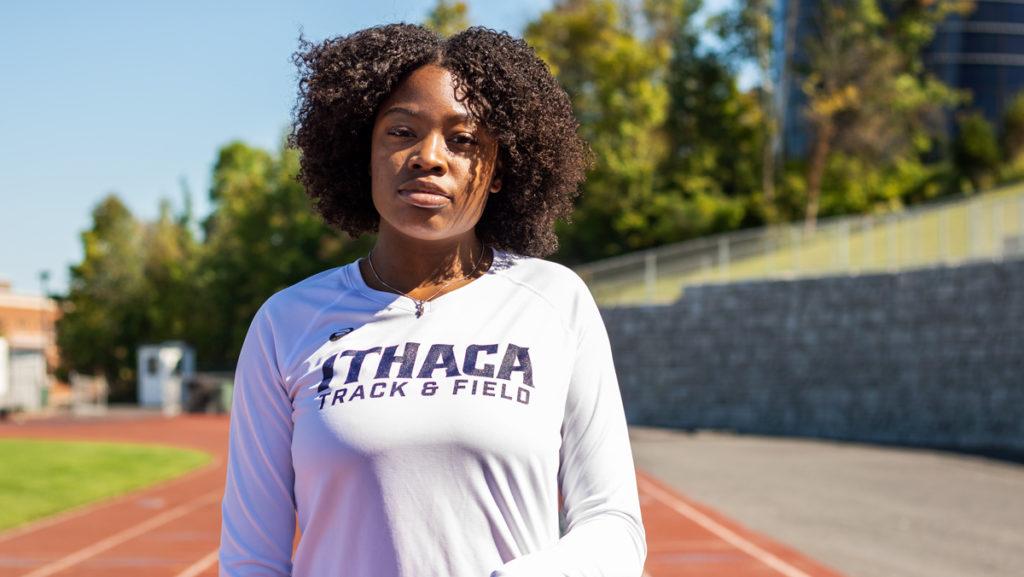Track and field is my happy place. It is one of my biggest stressors, but it also produces the most happiness for me. It empowers me. It heals me. This sport enables me to reach unrestricted heights. All of these things work best when I am comfortable in my own truth — but it’s hard to feel comfortable when there aren’t many people who look like you.
There are some things about being black that are hard to quantify. When you walk into a room full of individuals who look like you, the weight of the world is removed from your shoulders. Although many black people come from differing backgrounds and may not experience blackness in the same way, there is this unwritten code that binds us together until the end of time. This is the bond I felt when training with my summer team in Chicago, the Windy City Hammers. When I walked into practice, I knew everyone understood me.
One person would start rapping lyrics from Polo G or another Chicago rapper, and a few seconds later we would all be joining in. When we received stares from other black people around us because we were loud and cracking jokes, they did not give us harsh or confusing stares like the ones I so often receive at practice on the track & field team at Ithaca College. The looks they gave were ones of approval. They weren’t engaging in what we were doing directly, but sometimes you could see them starting up their own movement. It made me want to practice harder because the atmosphere was more relaxed.
At practice, we could discuss the black men and women who have built our sport and who are continuing to pave the way for us to participate. We can envision ourselves as people like Sha’carri Richardson and Grant Holloway. There is something powerful about being able to see people who look like you in positions of power. They can advocate for your struggles and feed into your happiness. Richardson openly scrutinized everyone who talked poorly about her wearing long weave, long nails and long lashes during competition. She made me feel like I could do that too. She made me feel like I didn’t have to mediate my culture in order to satisfy the people who didn’t understand it.
There is something powerful about being able to exchange a look and know that you’re both thinking the same thing. It is almost as if being born black gives you a superpower. The power is to be able to share the thoughts and experiences of your brothers and sisters. The power is to be able to know each other without words. This power makes you believe that there is hope in the struggles you share. But at the college, I had no one to exchange looks with. The empowerment that I once felt in my happy place was gone and replaced with sadness and formed into feelings of weakness. What I am explaining here for myself is not depression, although, for some, it could manifest in that. For me, my performance was affected negatively during my first year on the college’s track team.
When you’re in a place that takes up most of your time, lacking all these things I mentioned can drain you. Sometimes you don’t even notice it until it’s too late. When I feel this way, I try to immerse myself back into my culture in the little free time I have.
But oftentimes at practice, I find myself wishing it wasn’t this way. What I lack in my happy place at the college is the culture of my people. The culture that empowers me, the culture that makes me, me. The culture that makes me feel whole.
Because of what I went through last year, I want to start an organization for student-athletes of color at IC. I want to make sure that the next student-athlete of color who decides to come to the college can feel the comfort and support I wish I had. It’ll be a place for us to make connections and be unapologetic about who we are. Once we are able to do that, we can tackle some of the issues that we may face every day while being student-athletes of color.














